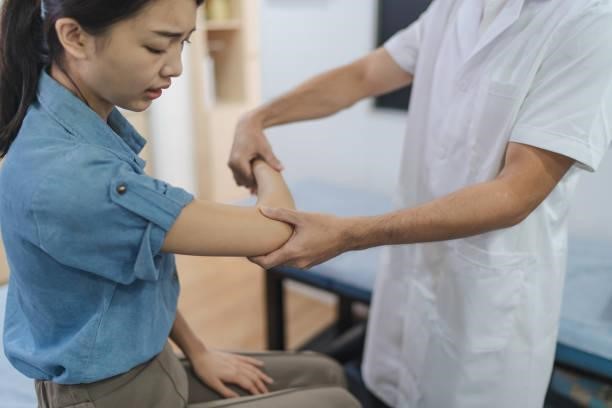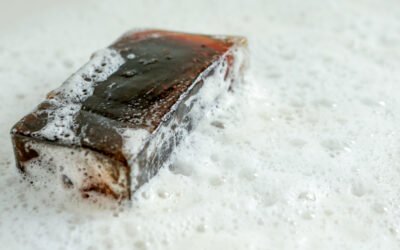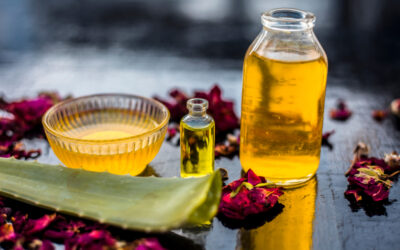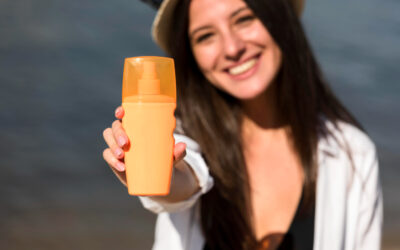Eczema, or atopic dermatitis, is a typical skin condition with itchy, inflamed, and irritated skin. It is estimated that up to 20% of children and 5% of adults in Singapore suffer from eczema.
While eczema has no cure, the symptoms can be significantly reduced and controlled with proper management and treatment.
Managing Eczema- Finding Effective Treatments in Singapore.
This article discusses some effective strategies for managing eczema and finding treatments that work in Singapore.
1. See Your Family Doctor or Dermatologist.
The first step in managing eczema is getting an accurate diagnosis and evaluation from a medical professional.
Make an appointment with your family doctor or dermatologist to determine the type of eczema you have and how severe it is. A specialist can help identify potential triggers and recommend appropriate eczema treatment Singapore options tailored to your needs.
Provide details on your symptoms, flare-up frequency, and any family history of eczema or allergies.
Your doctor may prescribe medicated creams, oral medication, or phototherapy to treat the inflamed skin and itchiness associated with eczema.
Mild cases can be treated with over-the-counter hydrocortisone, while more severe cases may require stronger prescription steroids. Biologic injections are emerging as effective systemic treatments for moderate to severe eczema. Discuss all medication side effects and risks with your doctor.
2. Try Over-the-Counter Emollients and Moisturizers.
Managing eczema can be a real struggle, but keeping your skin moisturized is one of the best ways to reduce flares and irritation. When shopping for moisturizers, your best bet is to look for over-the-counter emollients and creams for sensitive skin.
These types of moisturizers help provide a protective barrier over the skin and seal in moisture. Ointments work better than lighter lotions or creams since they contain more oil and occlusive ingredients.
Be sure to apply moisturizer frequently throughout the day, especially after bathing, hand washing, or cleaning around the house. This helps trap water in the skin before it evaporates. Apply moisturizer gently in the direction of hair growth while the skin is still slightly damp.

3. Watch Out for Infections.
When you have eczema, it’s important to keep an eye out for skin infections that can arise and exacerbate your symptoms.
The itchy, irritated eczema rashes are prone to infection from bacteria, viruses, and fungi. Signs of an infected eczema flare include honey-coloured crusting, swelling, increased warmth, redness, or pain around the affected areas.
If you notice any of these symptoms, it’s best to promptly see your doctor for evaluation, as infections often require treatment with prescription antibiotics, antiviral or antifungal medications.
Some common infections that can occur with eczema include staph bacteria, herpes simplex virus, and fungal infections. That’s why keeping your skin clean and nails neatly trimmed is key to preventing infections from taking hold and spreading.
4. Try Phototherapy Treatments.
For moderate to severe eczema that is difficult to manage with topical creams alone, phototherapy treatments may be an effective option.
Phototherapy involves exposing the skin to ultraviolet (UV) light under medical supervision to help calm inflammation and reduce eczema flares.
There are a few different types of phototherapies that can be used:
- Broadband UVB therapy emits a wide spectrum of UVB light and helps suppress the overactive immune responses contributing to eczema symptoms.
- Narrowband UVB therapy delivers a high-intensity dose of a specific wavelength of UVB light that targets T-cells in the skin.
- UVA therapy paired with a photosensitizing medication (PUVA) also dampens detrimental immune system reactions.
Typically, phototherapy requires 2-3 treatment sessions per week over several months to maintain results. During the sessions, the affected skin areas are carefully exposed to UV light, which helps decrease itching and inflammation over time. Eyes and genitalia must be protected to avoid damage.

5. Try Wet Wrap Therapy.
For those suffering from a severe, painful eczema flare, wet wrap therapy can provide much-needed short-term relief when creams and ointments alone aren’t giving enough symptom relief.
This specialized treatment involves applying topical medications and then wrapping affected areas with wet and dry layers of bandages.
First, creams or ointments are applied as prescribed by your doctor to the areas of inflamed skin. Next, a wet layer of gauze or tubular bandages is wrapped over the topical medicines. This wet contact helps the creams absorb deeply into the skin.
Finally, a dry bandage layer is wrapped over the damp wrap to seal in moisture and prevent evaporation.
The wet wrap therapy creates a protective barrier that allows topical steroids and emollients to better penetrate the skin while preventing scratching and further damage. It provides intensive hydration and occlusion to help calm severe flares.
6. Watch Your Diet and Control Allergies.
For some people with eczema, food allergies can trigger flares and worsen symptoms. Common food culprits include eggs, cow’s milk, peanuts, soy, wheat, fish, and shellfish. If you suspect certain foods make your eczema worse, talk to your doctor about identifying food triggers through elimination diets or allergy testing.
Start by removing one food at a time from your diet for a couple weeks under medical supervision to check for improvements in your eczema. For example, cut out milk and milk products completely while keeping everything else the same. If your symptoms improve, milk may be a problem food for you.
Once a food allergy is confirmed, strictly avoiding that item and getting label-reading savvy can help control outbreaks. Antihistamines like cetirizine may also be recommended before meals as a preventative measure if you accidentally ingest a known allergen.

Bottom Line.
Eczema is a challenging condition, but the expanding range of treatments offers more options for patients to control symptoms effectively.
Using medicated moisturizers, avoiding triggers, managing stress, and seeing a specialist can help reduce flares. Newer biologic drugs are promising for severe cases unresponsive to other therapies.
With a multidimensional treatment approach, eczema can be successfully tamed so patients can experience clear, healthy skin and an improved quality of life.

 Workout
Workout
 Meditation
Meditation


 Stories
Stories


 Podcast
Podcast E-book
E-book















